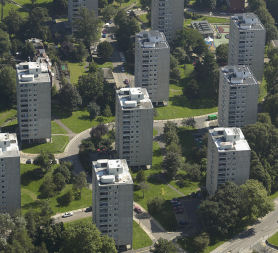Is housing market headed for profound change?
The Conservative party is quietly redefining home ownership, writes Gaby Hinsliff, in a way which could help first time buyers but hit those relying on rising house prices to fund their lifestyles.

The one big idea for which many Labour politicians secretly envy Margaret Thatcher is the right to buy for council tenants.
It defined her belief in aspiration, spawned a class of grateful new Tory voters and captured political imaginations – albeit while decimating the social housing stock.
So it’s appropriate that, as she celebrated her 85th birthday this week, her party was once again quietly redefining home ownership. Grant Shapps, the housing minister, gave a speech to the Housing Market Intelligence conference urging a period of house price stability and of treating homes not as investments but as somewhere to live. More significantly, he sided decisively with first time buyers (who need prices to fall) over established homeowners (banking on prices rising).
That might not sound dramatic, but it has significant implications.
House prices are softening again, prompting fears of a property double dip as unemployment rises.
That forces all parties to confront a choice they ducked at the election: do they want to shore up prices, as the last government did with stamp duty holidays and moves to curb repossessions? Or do they not, which could mean letting the market correct itself while keeping interest rates low to ease mortgage-holders’ pain?
We face a period of house price stagnation at least. That’s toxic for those reliant on soaring home equity to fund comfortable middle class lifestyles. Gaby Hinsliff, former Political Editor of the Observer.
The coalition now seems to favour this second, less interventionist approach.
The concern for first time buyers however seems at odds with this week’s main news, a reform of university funding which would see students graduating with bigger debts. David Willetts, now Universities Minister, has himself previously argued that one reason young people delay buying is that student loan repayments restrict their freedom to borrow.
One unexpected consequence of bigger student debt may therefore be fewer young buyers.
How buy-to-let is back
Channel 4 News Economics Editor Faisal Islam discovers the buy-to-let market is back, thanks to the taxpayer.
However this conflict is resolved, Shapps’s call for an end to property booms and busts suggests we face a period of house price stagnation at least.
That’s toxic for those reliant on soaring home equity to fund comfortable middle class lifestyles, or on property as a pension. But it helps what a recent report estimated were the 100,000 people a year priced out of buying between 2006-09, an aspirational constituency not unlike Thatcher’s upwardly mobile council tenants. If Shapps really means it, a significant rebalancing could be coming.
Read more from Gaby Hinsliff on David Miliband’s resignation and echoes of Portillo; and what lessons David Cameron can learn from the Conservative party conference.